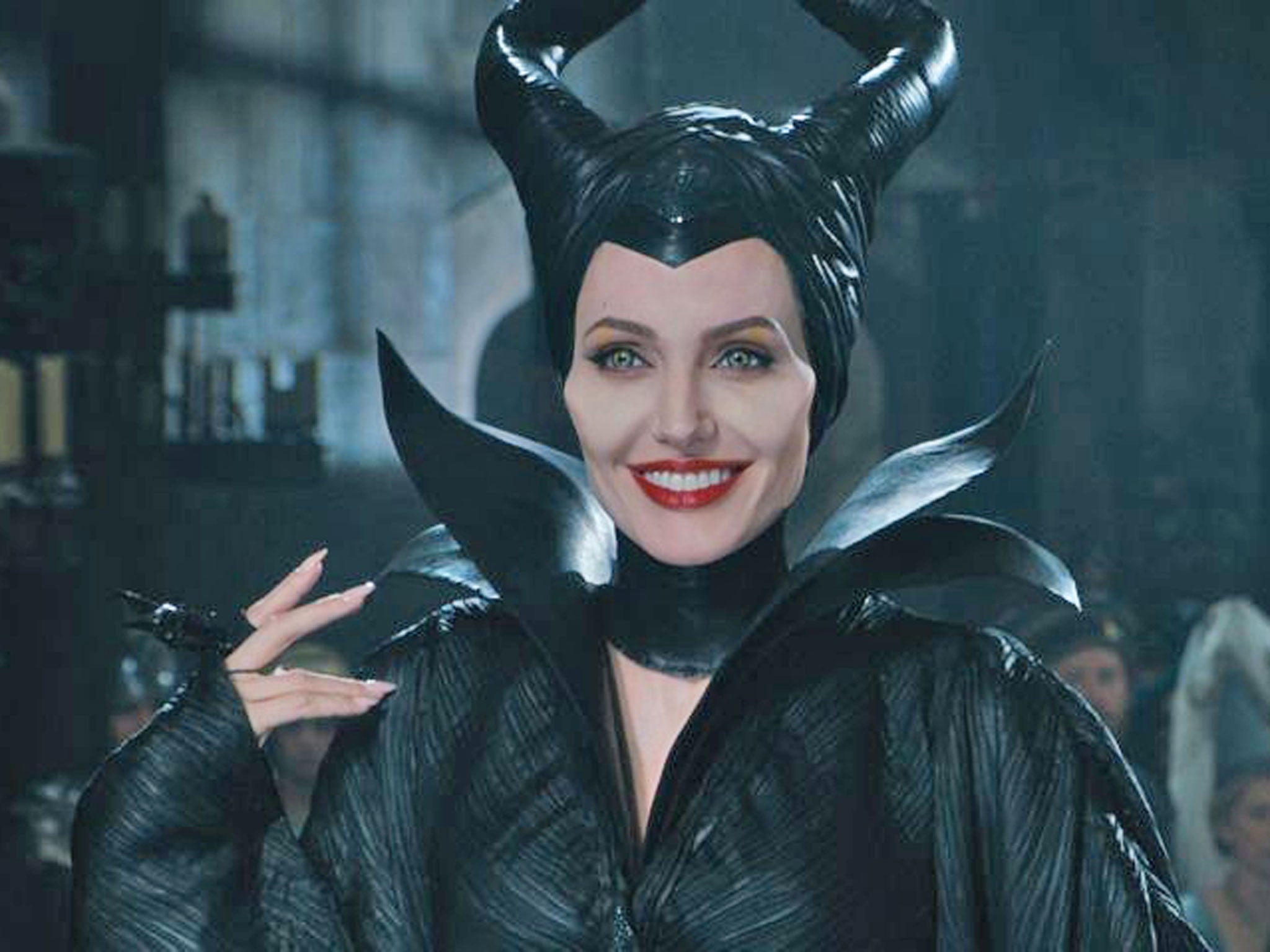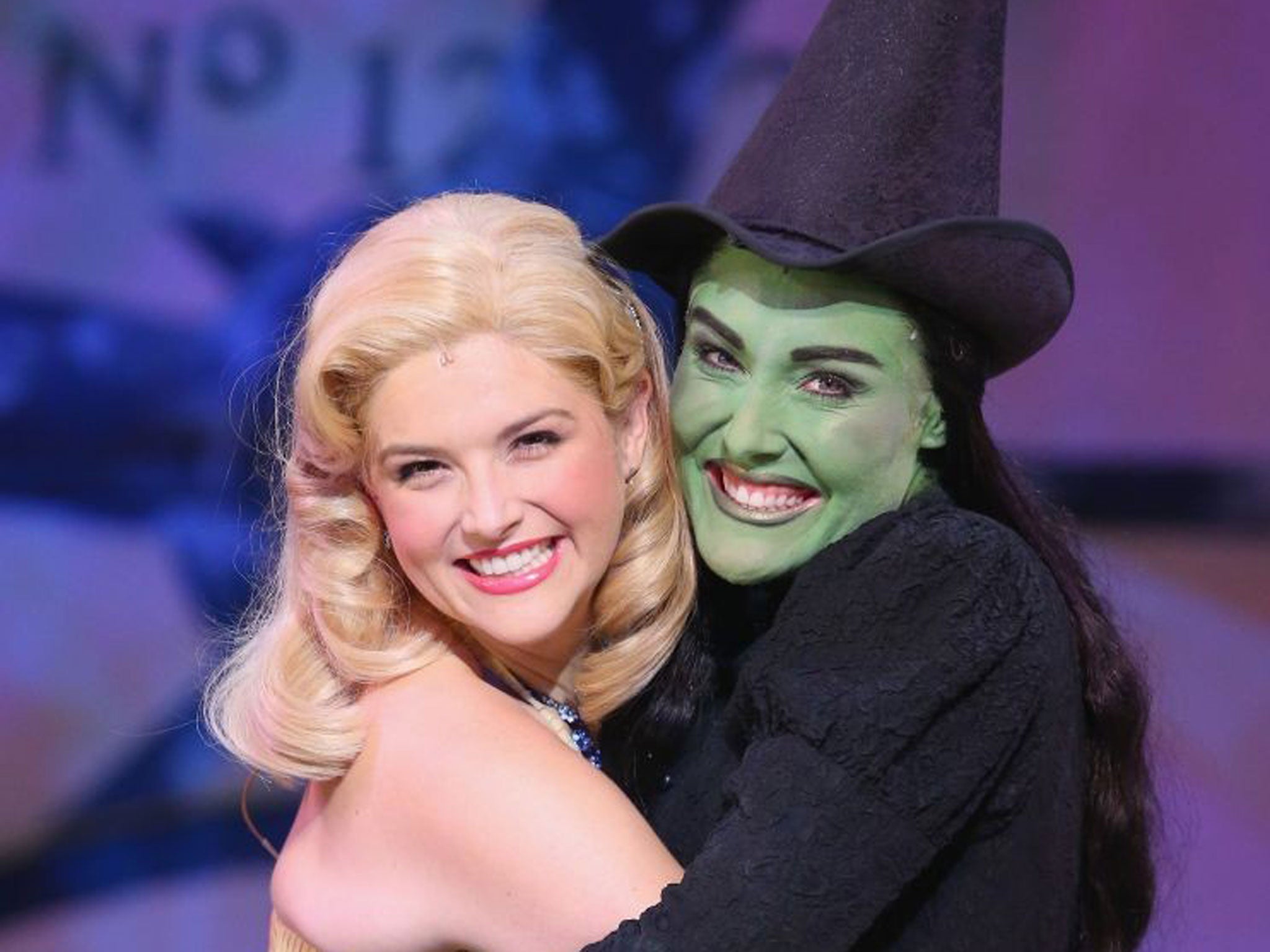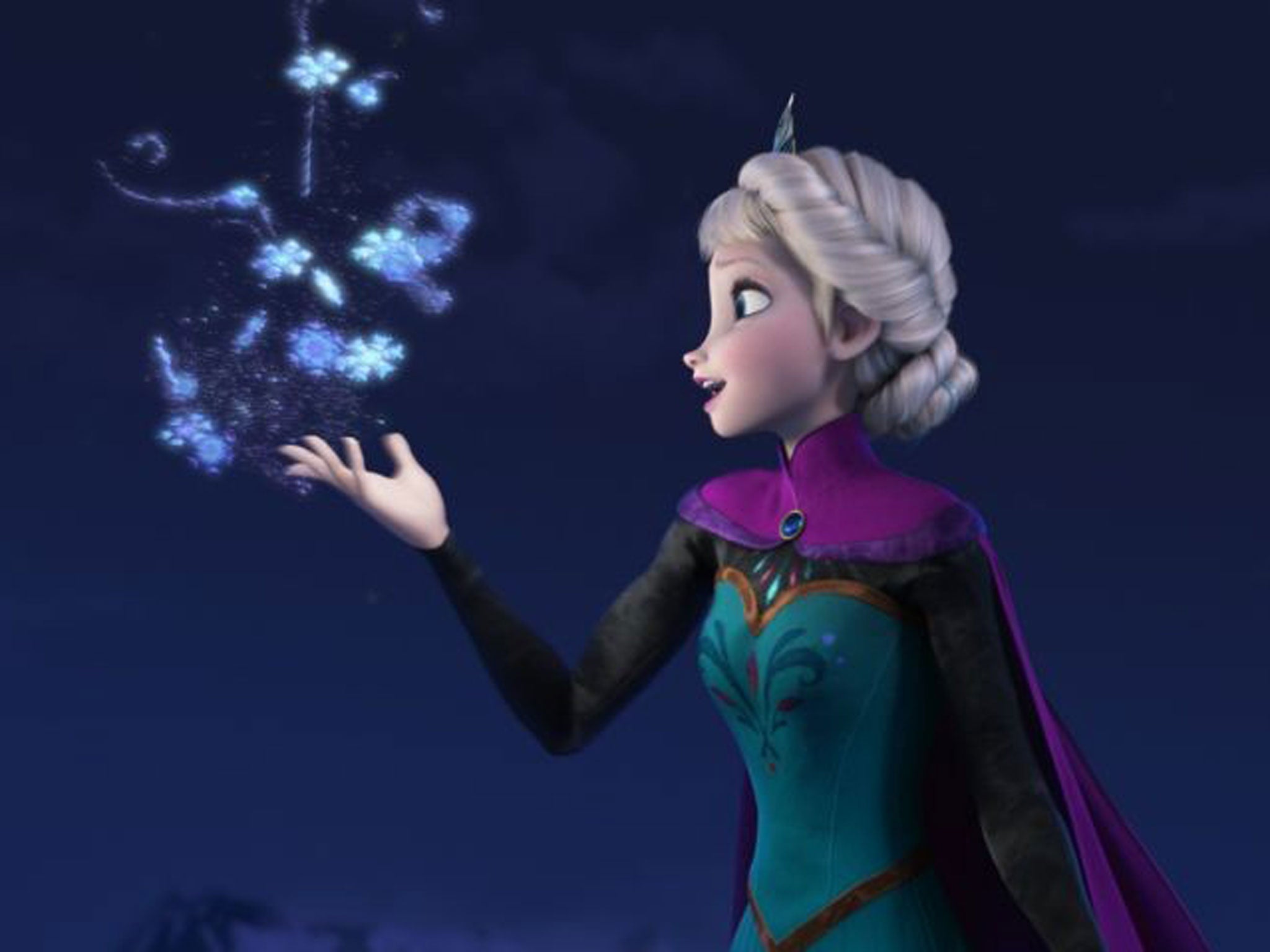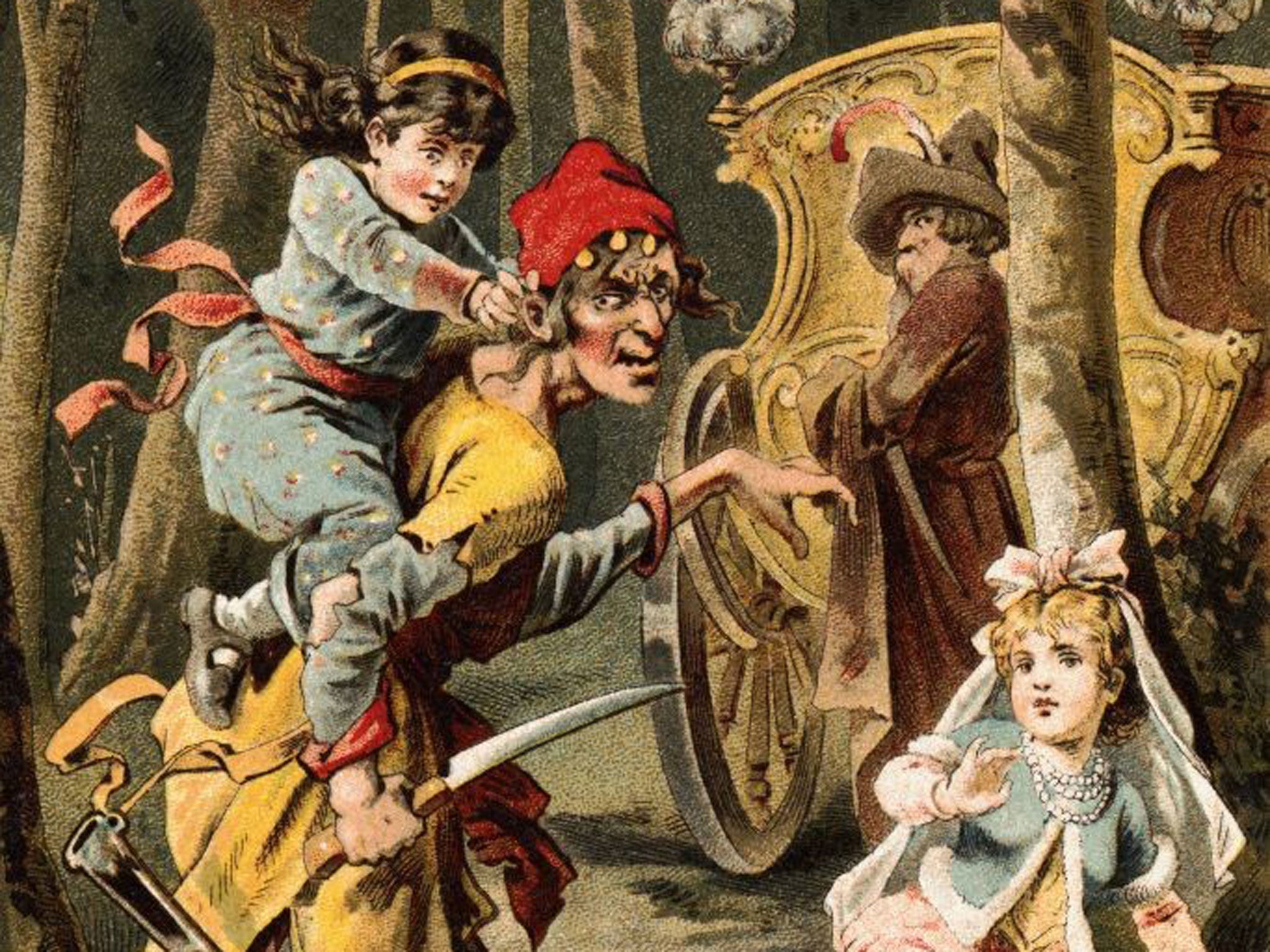Angelina Jolie brings your childhood nightmare to life with Maleficent
As Maleficent, starring Angelina Jolie as the evil fairy from Sleeping Beauty telling her side of the story, is released, Samantha Ellis examines how giving marginalised characters a voice makes familiar tales far more powerful

Your support helps us to tell the story
From reproductive rights to climate change to Big Tech, The Independent is on the ground when the story is developing. Whether it's investigating the financials of Elon Musk's pro-Trump PAC or producing our latest documentary, 'The A Word', which shines a light on the American women fighting for reproductive rights, we know how important it is to parse out the facts from the messaging.
At such a critical moment in US history, we need reporters on the ground. Your donation allows us to keep sending journalists to speak to both sides of the story.
The Independent is trusted by Americans across the entire political spectrum. And unlike many other quality news outlets, we choose not to lock Americans out of our reporting and analysis with paywalls. We believe quality journalism should be available to everyone, paid for by those who can afford it.
Your support makes all the difference.If, like me, you grew up on Disney's 1959 animated film of Sleeping Beauty, then Angelina Jolie is about to bring your childhood nightmare to life. Her new film, Maleficent, tells the story from the perspective of the wicked fairy, with Jolie styled and prostheticised to look more unearthly than ever, all horns, green fire, jet-black robes, high collars and razor-sharp cheekbones.
She cackles, croons menacingly and drips venom with every word she speaks. She is perfectly, precisely like the animated villainess who scared the living daylights out of all of us – only more so. From what I've seen, Maleficent is deliciously dark.
Maleficent feels subversive, the way that all perspective flips should be. Switching heroes and villains can put everything in question, from what really is "good" or "bad", to where our loyalties really lie. I've always found Sleeping Beauty tricky, because while Aurora is obviously the heroine, she's also boring. Do I want to spend my life charming forest creatures by trilling the same syrupy song over and over? Or would I rather be a gatecrasher who curses anyone who doesn't invite me to their party? I can see Maleficent's point. She's been snubbed and she's not like Aurora, passive even when she's awake; Maleficent goes to the party if she wants to. She gets revenge. She refuses to be sidelined and hooray for her.
In Charles Perrault's 1695 version, she's not invited because she's so old, everyone thinks she's died – an outrageous reason not to invite someone to a party. If an old fairy hasn't left her castle in years, it might be worth checking on her, not assuming she's dead. In Anne Sexton's poem "Briar Rose", Maleficent's anger is driven by jealousy – with "fingers as long and thin as straws, / her eyes burnt by cigarettes, / her uterus an empty teacup", she is painfully barren. And like so many childless women in history, she's been demonised, and now she's getting her own back.
But could she have even more reason to be furious? Would it be too far-fetched to say that the party she's not invited to is, perhaps, the patriarchy? Fairy tales peaked just as witch-burning did and it's no accident that Maleficent's name echoes the Catholic Church's 1484 treatise on witchcraft, Malleus Maleficarum, which sparked the whole thing. It feels very bold of Disney, and screenwriter Linda Woolverton (who wrote Beauty and the Beast, The Lion King and Tim Burton's Alice in Wonderland) to revisit its hit film.
I love a good perspective flip. I remember watching David Greig's play Dunsinane, in which Lady Macbeth survives Macbeth to become a thorn in the side of the English (who are intent on colonising Scotland), sitting in the audience with another playwright and whispering, delighted: "Isn't this naughty?" It was such a thrill to see Greig gleefully tamper with Shakespeare, liberating to feel that no story is sacred.
And I love the way that Jean Rhys's 1966 novel Wide Sargasso Sea, a compelling prequel to Jane Eyre, gives the madwoman in the attic a story and a voice. Rhys's heroine is a passionate, traumatised woman, dragged from her home in Jamaica, a paradise scented with cinnamon, vetivert and frangipani, to cold, hard England, where she is driven mad by the pressure to conform. Rhys grew up on the island of Dominica, and lived this story. She wanted to rip apart Rochester's dominant, white, male, European narrative to show that, as her heroine puts it, "there is always the other side". There's something endearing about her making a woman like herself the heroine; don't we all want to be the star? Rhys offers us just this possibility. She inserts herself into the story, making Jane Eyre a book she can see herself in, and maybe, as fan fiction goes mainstream, many of us read like this now. Perhaps we feel that anyone can read any story and dive in and re-imagine it any which way. The best perspective-flips can be exhilarating; if the story can change so radically, then surely anything is possible and maybe we can even escape the real-life roles we're trapped in.
But I also have a soft spot for Tom Stoppard's devastating 1966 play Rosencrantz and Guildenstern are Dead, which does exactly the opposite. Stoppard takes two nonentities, bit-players in Hamlet, and puts them centre-stage, where they puzzle at the meaning of life, ignored or bewildered by the Danish royals. They are ultimately the playthings of fate, or, rather, of Shakespeare, forced to bumble and plod and philosophise through to the ending he's written for them.
I've heard perspective flips called "vampire stories" or "parasite stories", suggesting that they damage the stories that inspired them. But is Jane Eyre any less alive, any less powerful, any less popular? Is Hamlet? I don't think so. I think they are enriched. The best perspective flips make us go back to the originals with new insights. Where the originals are troubling, a perspective-flip can give useful context. It is impossible to ignore the racism in Gone with the Wind. So I'm glad that Alice Randall's The Wind Done Gone gives voice to the black characters in Margaret Mitchell's book; it's just a pity that it lacks the verve and flair of the original. Much better is Will Eisner's comic book Fagin the Jew, which redresses the anti-Semitism in Oliver Twist. I bet Charles Dickens, who was so mortified that people thought Fagin was a grotesque caricature that he tried to fix things by writing a sympathetic Jew in Our Mutual Friend, would be glad to know Eisner's book, too.

Watch Apple TV+ free for 7 days
New subscribers only. £8.99/mo. after free trial. Plan auto-renews until cancelled

Watch Apple TV+ free for 7 days
New subscribers only. £8.99/mo. after free trial. Plan auto-renews until cancelled

I wonder what Jane Austen would make of Longbourn. Jo Baker's novel re-tells Pride and Prejudice from the servants' point of view. It springs from Baker's awareness that, as her family were in service in Austen's day, she wouldn't have gone to any balls. Instead, she would have been stuck at home doing the laundry. Longbourn begins with housemaid Sarah scrubbing Lizzy Bennet's petticoats, and while Lizzy is one of my all-time favourite heroines, those muddy petticoats don't seem such a badge of rebellion and non-conformity when you consider Sarah's cracked, chapped and chilblained hands stinging from the lye and soap.
While Lizzy and Darcy are falling in love, Sarah deals with real physical discomfort, exhaustion, hard work, sexual predators, the slave trade (via the Bingleys' ex-slave footman) and war (the Bennets' new man-servant was once a soldier). The servants aren't interested in the Bennet girls' romances, except when their jobs are in danger; so, unlike most readers of Pride and Prejudice, they hope that Lizzy will say yes to Mr Collins because then she'll keep them on at Longbourn. This makes her decision feel more selfish than in the original. Sarah is a wonderfully engaging heroine – tough, clever, curious, scruffy – but the more she shines, the more Lizzy is, just a little bit, tarnished.
Luckily Longbourn is much too good a book to veer into "revenge fic", a sub-species of fan fiction in which writers inflict suffering on characters that they dislike. And luckily, too, not all perspective-flips lionise one character at another's expense. Sometimes they reveal that heroine and villainess aren't so different. So, Shared Experience's famous stage adaptation of Jane Eyre cast Bertha as Jane's shadow, constantly trying to shove Jane aside as she moans, writhes and grabs at Rochester. It's only by repressing her violence and sensuality that Jane can be so serene, so composed. The two women are villains, heroines – and perhaps we're all much more complicated than we like to think.

Some of the best perspective-flips have come from feminists who are sick of being good girls and so go hurtling back through their favourite stories, reclaiming bad girls, femme fatales, sorceresses, mean girls (I've always had a sneaky affection for the Baroness in The Sound of Music), black widows, wicked stepmothers and witches. There's a great moment in the film Enchanted where Giselle remembers the time that "the poor wolf was being chased by Little Red Riding Hood around grandmother's house, and she had an axe". When she is told that this isn't the story that everyone else knows, she shrugs, "Well, that's because Red tells it a little differently". I love that Red is no victim but a violent, murderous girl, who is perfectly capable of writing her own story. Similarly, in Mirror Mirror, the Snow White revamp, Julia Roberts' wicked queen is trying to steal the story (as well as the kingdom) from her pretty stepdaughter. "This is my story, not hers," she snipes.
In the 2003 musical Wicked, it's the Wicked Witch of the West, so miserable and maligned in The Wizard of Oz, who is intent on telling her "untold story". Forget Dorothy; this story, both prequel and sequel to the film, is about Elphaba, a sweet, misunderstood, green-faced misfit and her blonde, vapid friend, Glinda. Elphaba is an underdog, an ugly duckling, an activist and a freedom fighter, and in the end, Wicked isn't really about wickedness, but about girl power and female friendship.
Disney's latest hit film Frozen also disrupts the heroine/villainess dichotomy – by doing away with a villainess altogether. Instead, it has two heroines: Elsa, who freezes everything she touches, and Anna, her angelic sister. Elsa has been taught to be scared and ashamed of her superpower and so, for a while, she looks set to become villainous, like the titular vamp of Hans Christian Andersen's story The Snow Queen. But then Anna does something so big and loving that Elsa stops being afraid and opens up to love, in one of the most heart-warming endings ever.

With Maleficent, Disney seems to be doing something quite different. From what I've seen, Aurora is a heroine who is attracted to the dark side, a heroine less like angsty, scared Elsa in Frozen than like the heroines in The Bloody Chamber, Angela Carter's 1979 book of revisionist fairy tales – dangerously curious women who are ripe for corruption, not-quite-good girls who want to be bad. There's a glimpse of this at the end of Mirror Mirror when Lily Collins's annoyingly virtuous Snow White feeds the poisoned apple to her stepmother, with a glint of malice that suggests that, in winning, she has become a bit wicked herself. So, Maleficent seems to promise the story will be dirtied up a bit, as she opens the pretty princess's eyes to the darkness. "Aurora," she warns, "there is an evil in this world, and I cannot keep you from it."
But really, who wants to be delivered from evil when the devil gets all the best tunes?
'Maleficent' goes on general release tomorrow. 'Sleeping Beauty' is being re-released to coincide with the film, and is out on 2 June.
Samantha Ellis's 'How to be a Heroine' is published by Chatto & Windus
Join our commenting forum
Join thought-provoking conversations, follow other Independent readers and see their replies
Comments